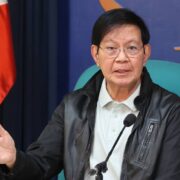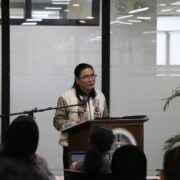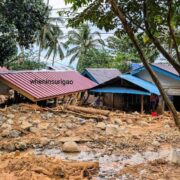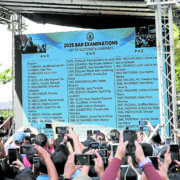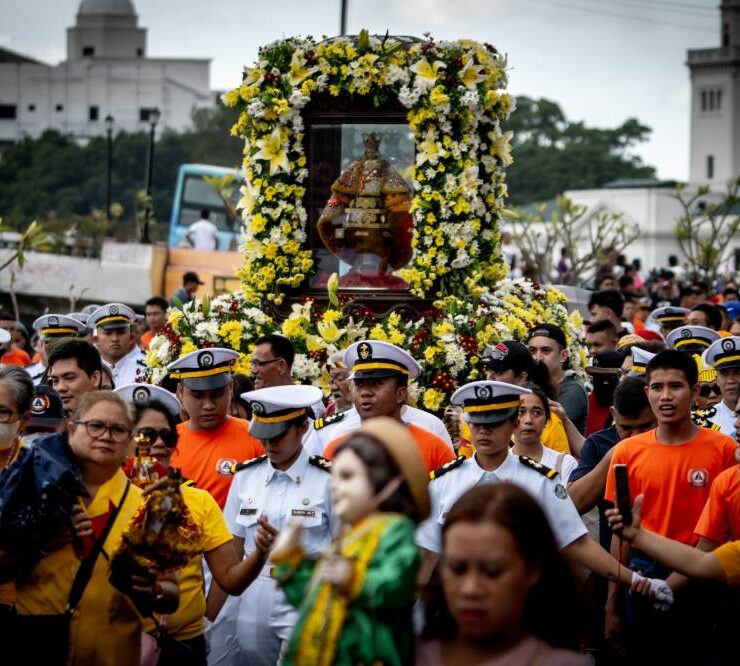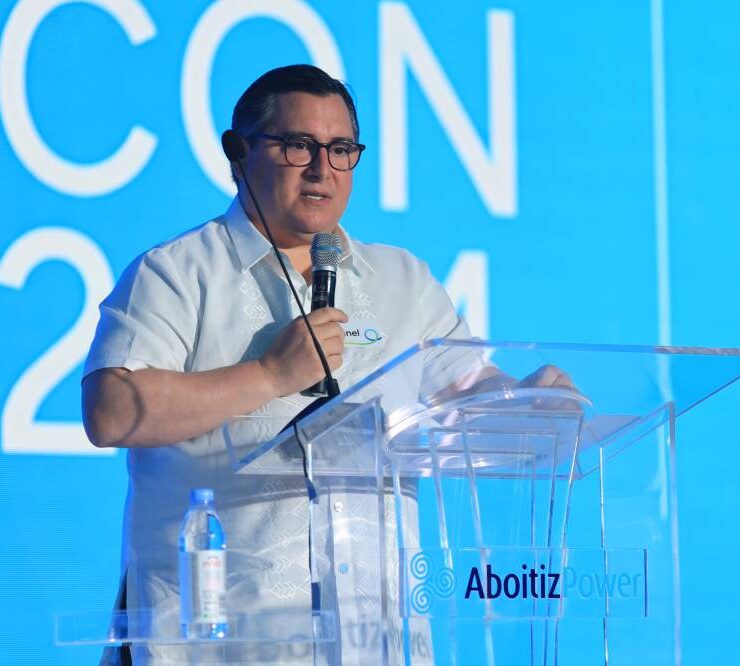Like Hogwarts, this ‘hidden’ academy trains new environmental leaders
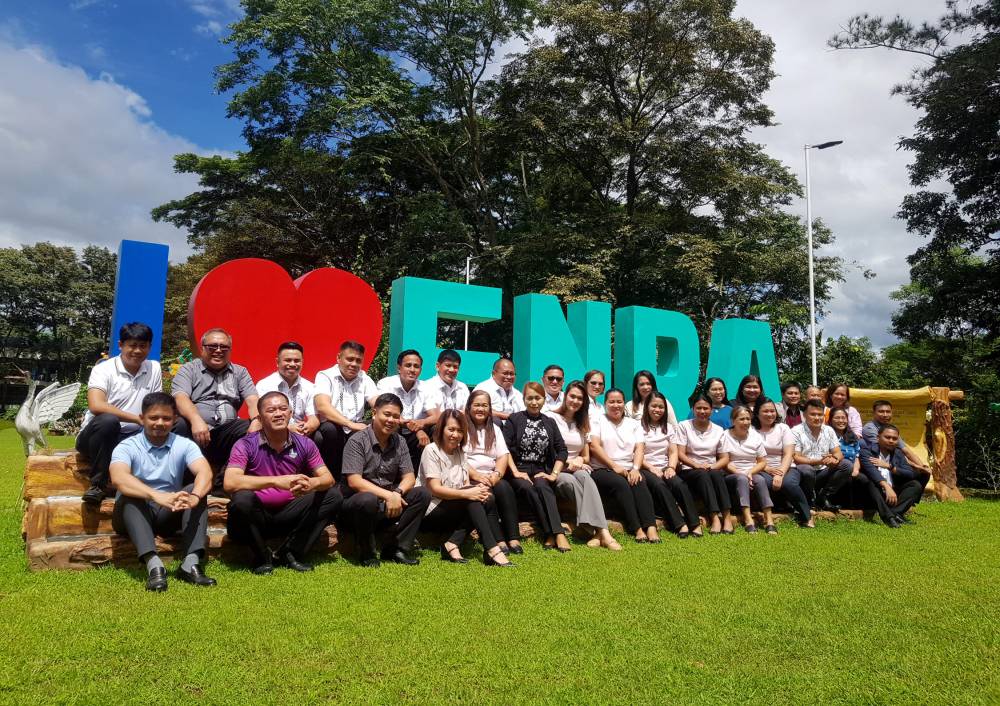
CARRANGLAN, NUEVA ECIJA —It’s 8 a.m. and 31 pairs of eyebrows are furrowed in concentration, tackling the finer points of budget and financial planning. This is no simple hour-long workshop, but something more intense. People are actually using calculators.
A packed hour later, Kamille Rosales from the United Nations Development Programme’s Biodiversity Finance Initiative concludes the session, allowing participants a few minutes’ rest.
This is the Environment and Natural Resources Academy (ENRA), a special training school for next-generation officers of the Department of Environment and Natural Resources (DENR). It’s akin to the Armed Forces’ Philippine Military Academy or the Philippine National Police Academy, but you may also think of it as a Hogwarts School for Nature.
Nestled amid the forested hills of Carranglan in Nueva Ecija, this school almost magically transforms DENR officers into tomorrow’s environmental leaders.
“The ENR Academy is a specialized competency development program designed to augment knowledge gaps, enhance understanding of ENR laws, and sharpen the proficiency of DENR employees in improving their public service skills. We train batches of 25 to 40 candidates who undergo an intensive, stay-in program for up to 38 days,” says Dr. Ethelvee Mataga of DENR Human Resources Services.
Project sustainability
Since 2018, the ENR Academy has produced almost 10,000 graduates comprising almost 100 batches.
Among the most important facets of an environmental manager’s work is to secure financial sustainability for projects. The best-laid conservation systems and the best-trained people simply cannot operate without a steady stream of funds.
To ensure that park and environmental managers develop sustainable financial skills, the DENR and the United Nations Development Programme’s Biodiversity Finance Initiative (DENR-UNDP BIOFIN) develops, oversees, and implements ENRA’s Protected Area Finance Planning (PAFP) Module.
“We saw a need for training on proper fundraising during the COVID-19 pandemic and crafted a series of pilot programs in 2020, 2021, and 2023 that saw the continuous evolution and improvement of our modules,” recalls DENR-UNDP-BIOFIN Philippines national project manager Anabelle Plantilla. Officially launched as part of the ENRA Protected Area Management course in June 2024, the PAFP Module enhances the implementation of any management plan by taking into consideration the drivers, policies, actors, and existing mechanisms that influence biodiversity finance.
The sessions tackle key elements such as analyzing how much a protected area spends for biodiversity, how much is needed to reach management targets, which finance solutions are optimal for a protected area, why managers need to adopt a particular business case, and how to successfully implement solutions step by step to achieve and monitor finance results.
The first batch to undergo the full PAFP module was Batch 10-01, composed of protected area managers from across the country.
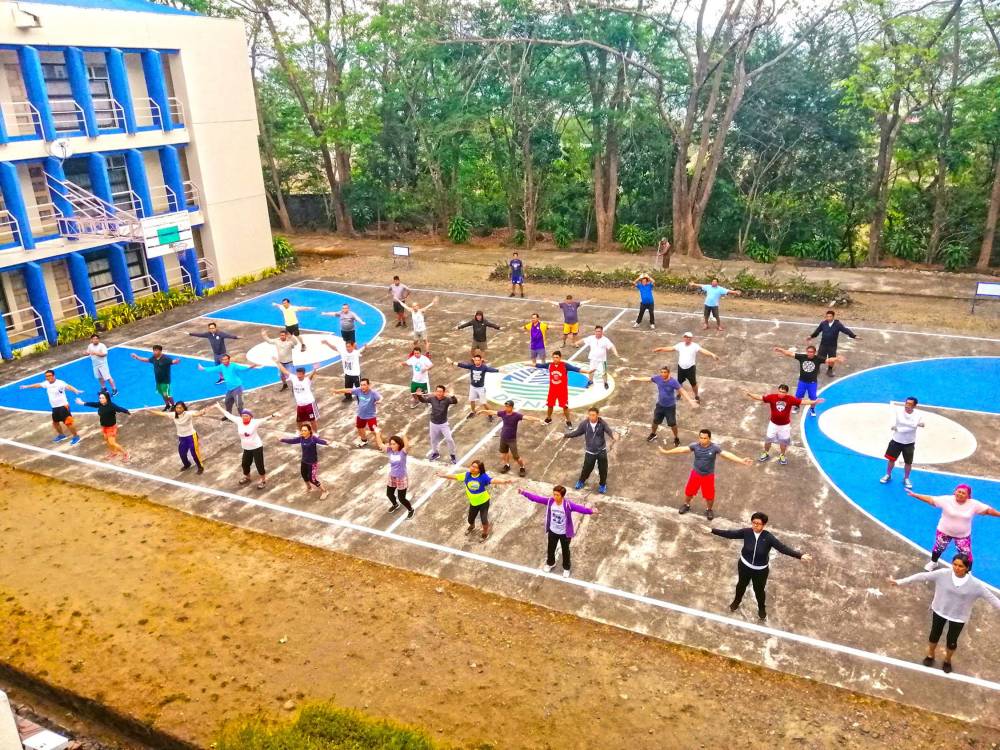
Meet Batch 10-01 Katala
This batch, called 10-01 Katala, has for its members 31 protected area superintendents from across the Philippines. Each batch adopts an endangered plant or animal species as a sigil. Katala refers to the cockatoo, particularly the Philippine Cockatoo (Cacatua haematuropygia), a critically endangered parrot still hanging on in Palawan, Tawi-Tawi, Bohol, and Samar.
Katala’s members are Rafael Banawa, Bonie Budeng, Charles Tomas, Dyanara Daniel, Cherish June Holongbayan, Marlon Jay Bayag, Victoria Apostol, Jasmin Andaya, Grace Malabanan, Krystal Dayne Villanada, Josie Corpuz, Pressy Joy Cantuba, Melody Ann Malano, Marco Navarroza, Edsel Mateum, Christopher Cabiles, Joery Oczon, Maria Gina Consolacion Gerangaya, Am Prospero Lendio, Judith Magbanua, Felicita Narcisa Cervantes, John Rhey Dayang, Domiliza Campaner, Merlita Tabamo, Alson Potutan, Jose Lechoncito Jr., Paul Rodney Arbiol, Mary Eve Nachon, Cirilo Lagnason Jr., Samuel Malayao, and John Patrick “Joanna” Cadiz-Speeckaert.
“We’ve been here over three weeks and we’re only halfway done,” shares Cirilo Lagnason Jr., park superintendent of the Sarangani Bay Protected Seascape. “We live like monks and nuns. There’s no going out, except on Sundays. We wake up before 5 a.m. for mandatory Zumba, have breakfast, and tackle jam-packed classroom
sessions that last until well over 6 p.m. We end each day by writing our professional and personal thoughts on our journals. It’s like being in school again.”
Like Hogwarts, participants also have their respective Houses. This particular batch has five: House Agos with its fish motif, Mulawin and its high-flying eagles, Viay or home of the mangroves, Saribuhay or the majestic mountain, and Molave, House of the towering tree.
If Hogwarts boasts of specialties like herbology, magic history, potions, and defense against the dark arts, ENRA has courses on biodiversity finance, biodiversity conservation, natural capital accounting, resource management, leadership, and other fields needed to upgrade their students’ skills.
“This is the longest stay-in program I’ve ever been part of. It’s been over 20 days and I really miss my three kids, but this is for our personal development and the country,” shares Merlita Tabamo, park superintendent of the Mount Kitanglad Range Natural Park. “We have very organized schedules, useful lessons and great resource persons.”
The bonds forged by such a long and intense camp is palpable. “We all come from different backgrounds, regions, and protected areas,” adds Merlita. “But here we’re all the same, helping each other out until we graduate.”
ENRA students wake up at the break of dawn. There’s mandatory Zumba at 5 a.m. since a strong body helps build a sound mind. There’s a heavy breakfast, then participants surrender their mobile phones to minimize distractions.
There’s a game-like recap of the previous day’s learnings, followed by intensive classroom sessions and exercises that end at around 6 p.m. Before dinner and the never-ending nightly task of catching up with emails, participants write their thoughts, both personal and professional, in their ENRA journals. Sunday is the only free day and students must first get an official pass to leave the ENR Academy for a few hours. This goes on for over a month: study, sleep, repeat.
Bridging the gap
The world needs approximately $950 billion per year to restore and protect its endangered natural ecosystems, according to a 2020 study by the Nature Conservancy, Paulson Institute, and Cornell University. However, only around $121 billion is spent annually to conserve biodiversity.
DENR-UNDP BIOFIN was created to help governments bridge this gap. Working in over 40 countries, UNDP-BIOFIN develops both practical and creative ways to raise funds for the upkeep and improved management of the world’s protected areas.
Set to conclude operations in the Philippines in 2027, UNDP-BIOFIN has so far raised over $84 million for 107 legislated Philippine protected areas by pushing for increased congressional financing since 2020.
Its Year of the Protected Areas campaign captivated public interest in visiting the country’s protected areas after the COVID-19 pandemic. Even mobile gamers have begun to donate to conservation efforts since the launch of BIOFIN’s Animal Town app last March.
Before graduating, ENR Academy students must understand and satisfactorily pass UNDP-BIOFIN’s PAFP Module.
“Funds are the lifeblood of projects, so we teach our students everything from sound financial planning to out-of-the-box fundraising strategies,” says DENR-UNDP BIOFIN’s Plantilla. “Through effective fund management, we can secure triple bottom-line benefits that benefit people, economies, and the planet.”
After nearly 10 hours of classroom work, the school day’s final lesson comes to a close. The students wearily troop out of the classroom to dinner, stretching tired limbs after a long day.
“I developed personal discipline here. I was never an early riser, but I am now,” says Merlita with a laugh. “Best of all, the ENR Academy develops the core values of DENR: discipline, excellence, nobility, and responsibility.”
The day is done and tomorrow will be the same—but two weeks from now, a new close-knit batch of ENR Academy graduates, equipped with new skills and knowledge, will emerge from these mountains, ready to make the magic happen in their respective protected areas.
This story first appeared on Nov. 25 in the Iloilo-based paper Daily Guardian.


